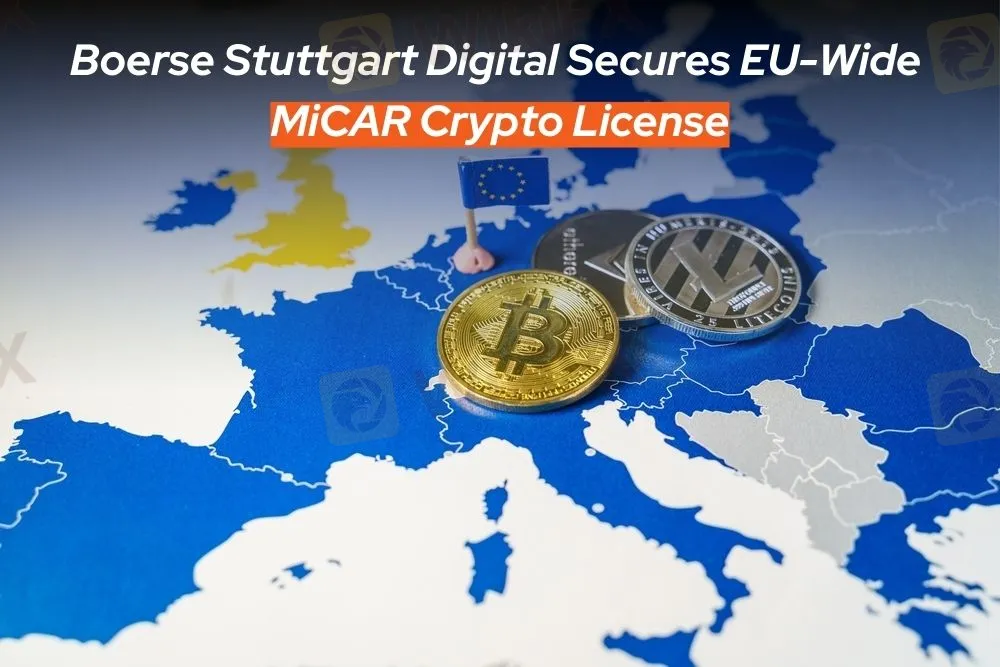Boerse Stuttgart Digital Secures EU-Wide MiCAR Crypto License
abstrak:Boerse Stuttgart Digital secures Germany’s first MiCA license, enabling EU-wide operations and expanding its digital asset services.

Boerse Stuttgart Digital, a subsidiary of Germany‘s second-largest stock exchange, recently became the first German entity to secure a crypto-asset service provider (CASP) license under the EU’s Markets in Crypto-Assets (MiCA) regulations. This license, awarded by the Federal Financial Supervisory Authority (BaFin), enables Boerse Stuttgart Digital to operate across all EU member states, marking a significant milestone in the companys journey towards digital asset expansion.
Regulatory Challenges and Breakthrough
The implementation of MiCA regulations across the EU aims to create a consistent framework for crypto-asset services. However, Germanys adoption faced delays due to political instability, including the collapse of the coalition government. This left legislative gaps, such as the formal designation of BaFin as the MiCA regulator. Just before the 2024 holiday season, the Bundestag passed the necessary laws, allowing BaFin to issue the CASP license.
Building on Institutional Ties and Expanding Offerings
A key factor in Boerse Stuttgart Digital‘s success is its collaboration with institutional partners like DZ Bank, Germany’s second-largest financial institution. This partnership supports the rollout of crypto services to 737 German community banks, with pilot projects already underway. The companys ability to bridge traditional banking and digital assets showcases its commitment to advancing the financial ecosystem.
According to Dr. Matthias Voelkel, CEO of Boerse Stuttgart Group, the company is working to develop integrated solutions for financial institutions across Europe. By building on its expertise, the firm aims to scale its operations while meeting the growing demand for secure and efficient digital asset services.
Broker ng WikiFX
Exchange Rate
